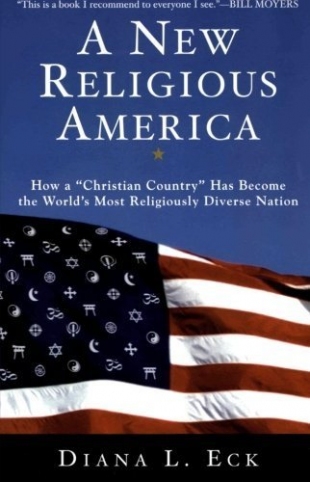"The message of the parliament of 1993, from beginning to end, and ritually enacted in dizzying proportions, was, 'Here we all are.' And this message was indeed a remarkable one. In a day when global gatherings and international meeting are increasingly commonplace, the most remarkable thing about the 1993 parliament was the fact that it was also local. It grew from the soil of today's Chicago and from the new reality of the American Midwest. If not a single delegate had come across the Pacific or Atlantic, the magnitude and diversity of the 1993 parliament would have remained virtually intact.
"During the parliament, an Assembly of the World's Religious Leaders met for three afternoons in a large hall of the Art Institute of Chicago. The hall was set up, not as an auditorium, but in tables of eight, as if for a dinner party. Each table was set with the name cards of the participants, and around each table for two hours each afternoon, we were to discuss the 'Global Ethic,' proposed by the council and its drafter, the theologian Hans Kung. At one table the Sikh guru Yogi Bhajan sat between the Reverend James Forbes of Riverside Church in New York and Azizah al-Hibri, a feminist Muslim law professor. Across the table were Louis Farrakhan, the Korean Zen master Samu Sunim, and the Crow leader Burton Pretty On Top. At another table sat the Dali Lama, with Theodore Hesburgh from Notre Dame University, and Mehervan Singh of the Sikh community in Singapore. At my table were Hans Kung himself, the Jewish feminist theologian Susannah Heschel, and the Islamic philosopher Seyyed Hossein Nasr. Our discussion was rich and energetic. We disagreed, of course, over the religious basis for ethical directives such as not killing. We might cite the Qur'an or the Ten Commandments or Jesus' Sermon on the Mount; Hindus and Jains might speak of the divine soul within or the bad Karma that would accrue from taking a life. The point of our discussion was not to gloss over the differences but to ask whether out of these differences a common standard of action might still be possible and a global sense of accountability for action might be achieved. In the end, the Global Ethic was signed, an enunciation of principles so basic they seemed too little, but so profound that if people truly adhered to them, the world would never be the same."
